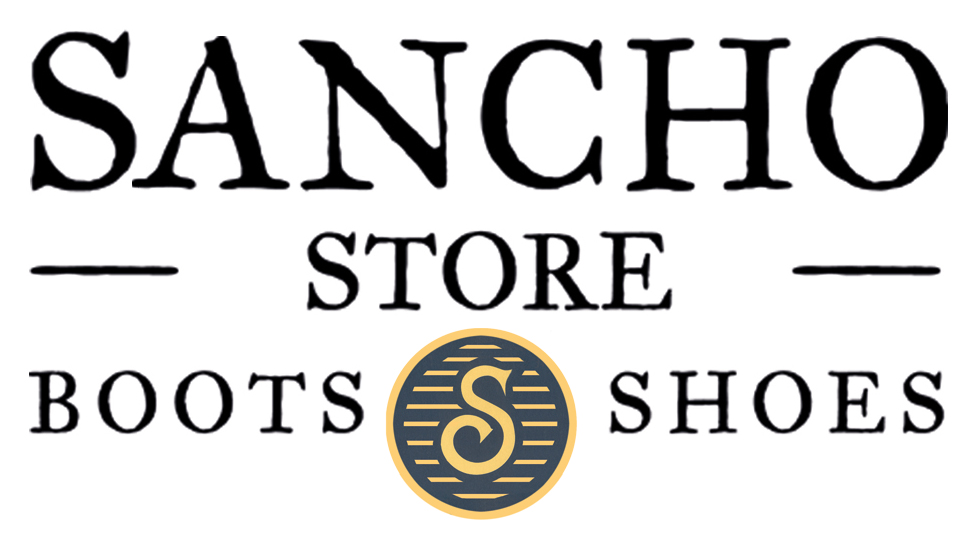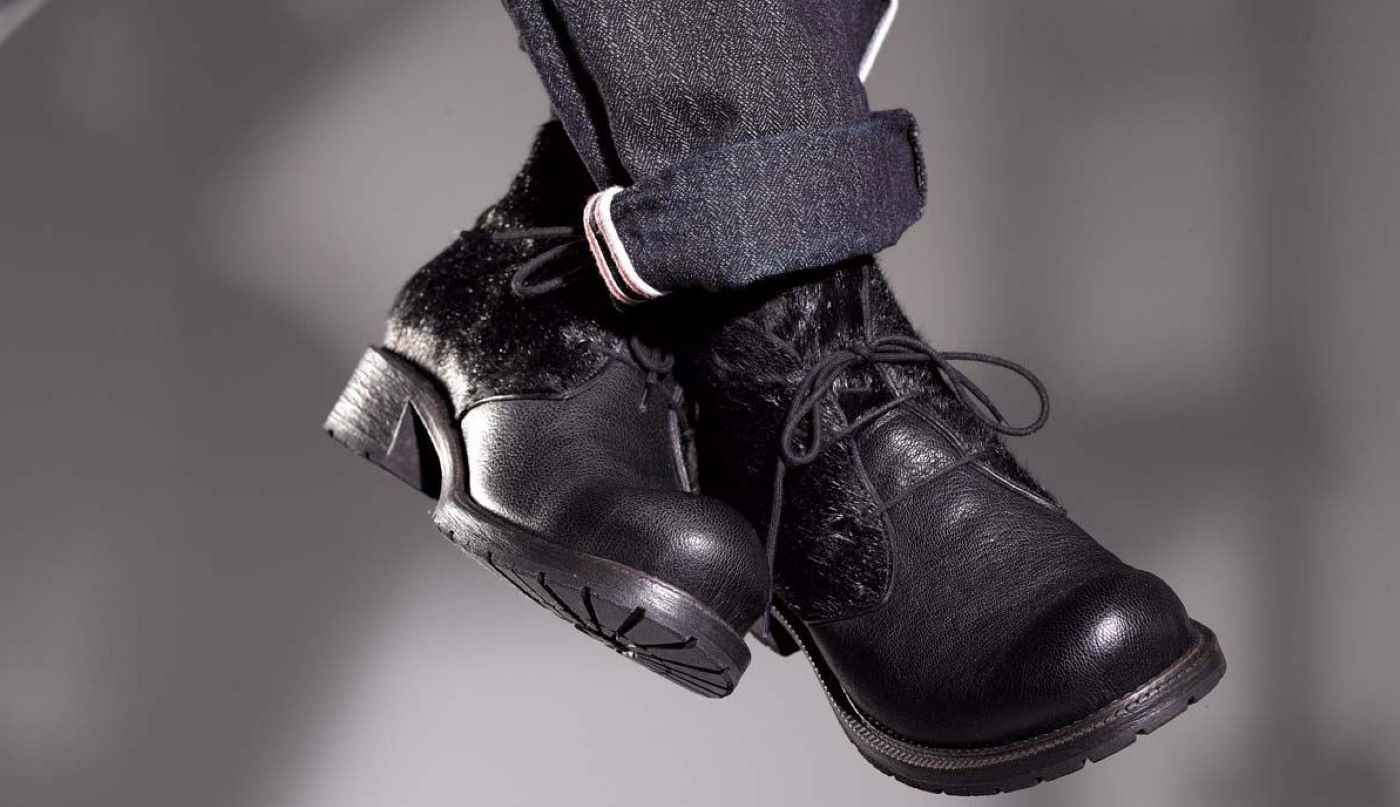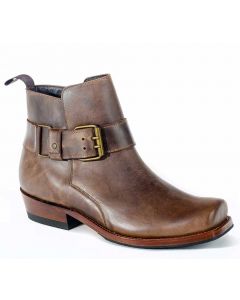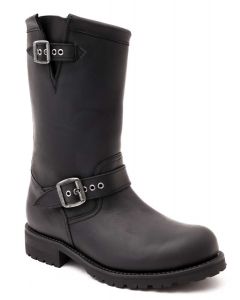- 05.05.2023
Am Puls der Zeit steht nicht im Widerspruch mit traditionellem Schuhmacherhandwerk – nein, es ist eine Garantie und Qualitätsversprechen. Es steht für die Symbiose von traditioneller Maßschuhfertigung mit der Aktualität von morgen.
Massgefertigte Schuhe sind nachhaltig. Sie passen so perfekt, dass man gewillt ist sie immer und immer wieder reparieren zu lassen und halten dadurch für eine halbe Ewigkeit.
Das Kulturmagazin Ensuite und Sancho-Store besuchen die Meister der massgefertigten Schuhe in aller Welt.
This time we spoke to Gerhard Wieser
from Vienna.
GerhardWieser - Wieser Shoe Design - Gymnasiumstraße 32
A-1180Vienna
Phone: +43-1-4783219
Mobile: +43-660-5528416
gw@wieser-shoe-design.at
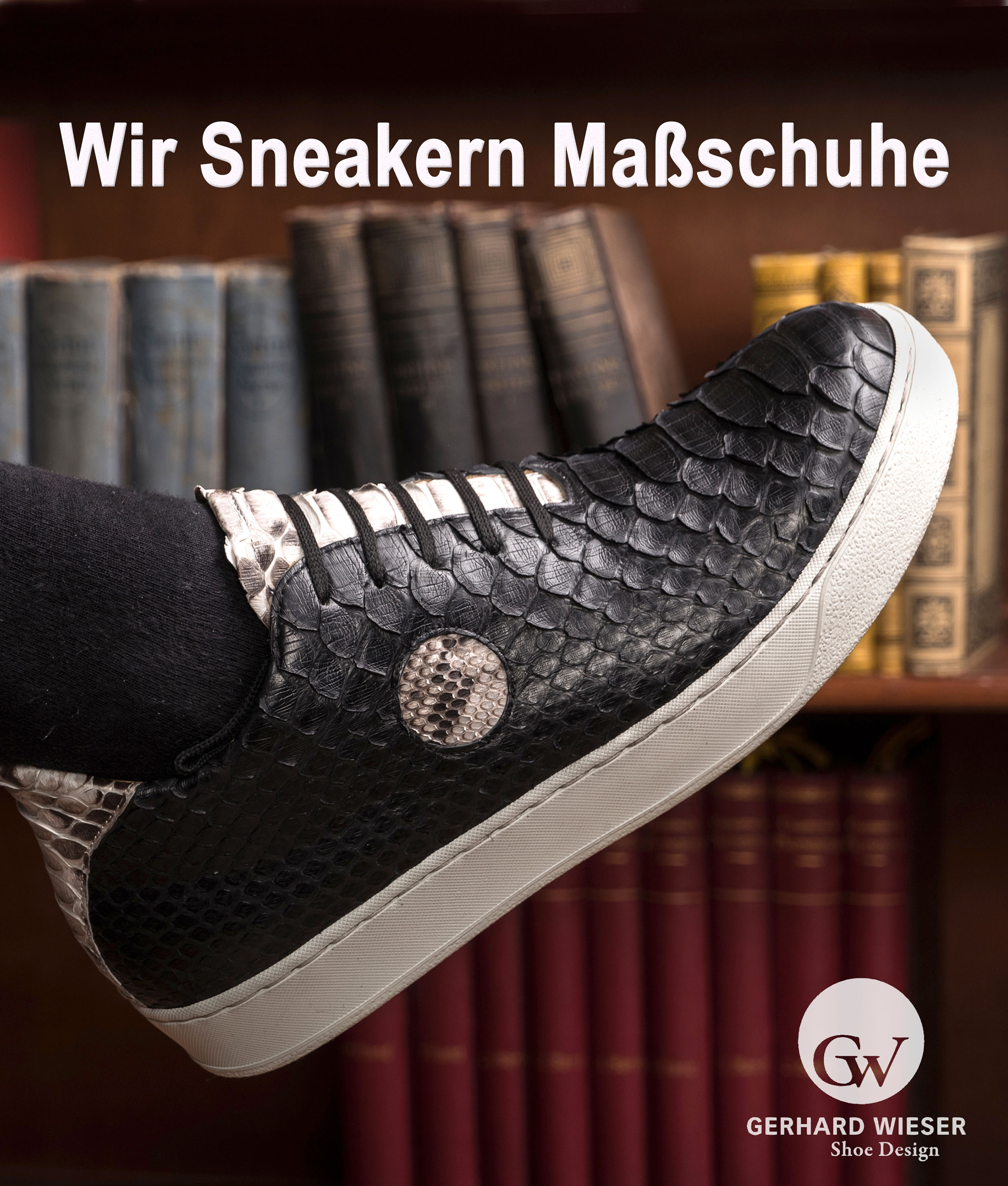

Do you make the shoes to measure yourself and do you also do repairs?
Yes, we make the shoes ourselves from scratch in our own workshop and also offer repairs.
We have people who have been coming to us for years for shoe repairs, but originally they found their way to us because they were looking for someone who could repair their jacket or bag. And then at some point they bring us their shoes and maybe they have a shoe made to measure.
How much does a protective sole for a boot cost you?
38euros
How did you become a shoemaker?
It's relatively easy, I'm a 3rd generation shoemaker. Both my grandfather and my father were shoemakers. So even as a child I was always in the workshop and this profession has always been part of my life.
Where did you learn your trade?
Not with my father in his shoemaking workshop.
I completed my apprenticeship in St. Pölten. So not with my father. Of course, that would have been the most obvious choice, but certain things are better learned away from home. It's a tougher school.
Later, I worked in the sports shoe industry for 11 years.
Ten years ago, I finally took over an existing shoemaker's workshop in Vienna, whose owner was retiring.
I didn't take over my father's workshop, he fell ill and gave up his shoemaking business when I wasn't ready to run my own.
If you weren't a shoemaker, what would you be?
Of course I thought about that too. I once thought about being a sports teacher, that would have been an option.
Then I personally thought about whether I would like to do police training, the officer school with a focus on sport. But I have to admit that I would have found the hierarchy in this organization difficult to cope with.
Do you also train apprentices?
Not at the moment.
What is your favorite part of shoemaking?
Sewing the uppers together is actually my favorite thing to do.
We have divided up the various work steps in our production department, which allows us to work more efficiently.
I mainly do customer service, drawing lasts and patterns. I receive the customer, measure the foot and find out what the customer wants.
It takes us 6-7 months to make a shoe.
We have a few sample shoes that the customer can use as a guide, but otherwise we make exactly the shoe they want.
We also reproduce many of our customers' favorite shoes. We often copy existing shoes on request, especially for women.
How many hours do you work per day?
50-55 hours a week. The store is open from Monday to Thursday. Friday is a working day for me without customers. I'm in the workshop at home, so I don't have to drive to Vienna, which saves me a 2-hour commute.
What has changed in your profession over the years?
The main thing that has changed is people's expectations of bespoke shoes. People want shoes that are less firm and initially hard. People no longer want to break in their shoes, which is essential for a firm shoe. 80% of people no longer have this patience.
Weight and lightness are also a big issue, and people want a soft sole.
So no more heavy, sturdy shoes. People no longer expect a shoe to last 50 years or more. So I am also moving with the times. That's what big industry has come up with, today 70-80% of people wear sneakers.
Shoemakers can also make sneakers and thus meet customer demand.
The whole thing with good material, where the foot doesn't sweat, material that doesn't pull or pinch, that lasts a long time. You can also make a comfortable, soft shoe to measure.
This has become even more important during the pandemic; nobody needs business shoes when working from home.
The next generation is no longer used to classic shoes.
A really horrible trend that I've also noticed is that people no longer open and close their shoelaces. They simply tie them loosely once and then slip in and out of the shoe. That's terrible.
What makesa good shoemaker?
The most important thing is to have a feel for what the customer wants. What they expect from a bespoke shoe. This is not the same for every customer, as it is for the bespoke tailor, one wants it to be body-hugging, another rather loose and comfortable.
It's all about making this assessment and then implementing it by hand.
Of course, you also need to have the craftsmanship to produce the right quality, but that alone is not enough.
You really have to feel what the customer wants so that they are completely satisfied with the shoe.
Not every customer suits every shoemaker and vice versa.
What is the biggest challenge for you in shoemaking?
As mentioned above, assessing the customer is the biggest challenge. Especially with mountain shoes, my experience has taught me that if the customer says he is going to the high mountains, then you better make him a shoe of a slightly lighter level.
What are the advantages of a custom-made shoe?
A custom-made shoe is made exactly to your requirements. Unique fit, unique design. And, of course, durability. A made-to-measure shoe will last a lifetime. You can only get these characteristics with made-to-measure shoes.
What should you pay particular attention to when caring for handmade shoes?
A lot has also changed in shoe care; in the past it was taken for granted that shoes had to be cared for. Today, there are so many people who never care for their shoes or don't even know about it.
Shoes are brought to us for repairs that have probably never seen a care product.
Then you can explain this to the customer and advise them on care.
The most important thing is to use the right care product. As there are different leathers, you also need different creams. But unfortunately you can't force people to use them, you can only recommend them.
It is also important to apply less care product but more often.
Which shoes are you currently wearing?
At the moment, 70% of all shoes are sneakers with lightweight soles. Also for women, especially lightweight construction. Even for Norwegians, heavy vibram soles are no longer used, here too it is more comfortable with a light vibram sole.
Weight is therefore an issue in all categories.
In addition, a pleasant foot climate and reparability, in other words everything that a custom-made shoe offers.
How often does a customer come to your store?
That varies. Some come 3-4 times a year. Others I don't see for 2 or 3 years and then they come back.
Do you have a lot of regular customers, and what kind of people are they?
Yes, we do, we live mainly from our regular customers. And from their recommendations.
What do you talk about with your customers?
God and the world. Many customers also ask me how I'm doing and really want to know. The customers then come to me in the workshop to chat, so I can continue working and we can talk. I have a very relaxed relationship with everyone.
Do you have any celebrity customers?
Not really. That's not important to me either, and the ones I have don't want it to be known. I don't treat them any differently and I don't show it to the outside world. They appreciate that too.
Who repairs your own shoes?
Yes, I do it myself, of course.
Where did you last go on vacation and what shoes did you take with you?
Skiing, of course, ski boots and my standard winter boots, lambskin-lined with sturdy soles. They're perfect for getting around everywhere, you can go tobogganing with them, but also hiking. And they're easy to look after.
In summer, I actually like being at home or in Italy and that's when I wear my Espradillos, the Wiserino. They weigh 140 grams on the foot, that's all.
Is therea shoe that you will never forget?
A shoe made from fish leather. Finished, paid for, everything. Then we did a photo shoot of it.... and it was stolen. Apart from the photo shoot, it was never worn.
What is your favorite shoe and which shoes do you not like at all?
A favorite shoe for me is made of python leather, no matter what kind, for me preferably a sneaker .
I don't like patent leather shoes at all. I personally would never wear them. Not even riding boots.
We also no longer repair riding boots. The problem is that after such a repair, the whole workplace and the sewing machine have to be cleaned. There's residue everywhere and if you want to sew a white shoe straight afterwards, that's not possible.
What are your plans for the future?
I just hope that things continue as they are. That not too much changes. The most important thing is that I stay healthy. You can't plan too far ahead anyway.
I don't have any expansion plans, many people who do that burn their fingers because the quality can also suffer.
We don't have any shoes in stock either, we make everything to order. Anything else is not my philosophy.
So it can stay as it is.
But the most difficult thing is finding capable staff. It's easy to get orders, but the real challenge is to have capable staff who can fulfill the requirements.
I no longer have the patience to train someone for 2 years and then I'm not even sure that they will stay.
So if it stays the same in terms of size, I'm happy.
I don't think there will be any big steps towards digitalization in our sector. Craftsmanship remains craftsmanship.
Even if the foot could be measured digitally, measuring it by hand is enormously important, as it can also break down the barrier between the customer and me. I get to know the customer.
Last week, a customer came back to me after 5 years. When I look to the future, I hope it stays that way.
If you keep the quality level, then you'll keep your customers.
If it stays the same in terms of size, I'm happy.
What moment regarding shoes will you never forget?
That's actually the moment from my childhood, the fitting, the pinching of the shoes, I've had that in my head since I was a child. I'll never forget it. Even today, every time I pinch a shoe, I always think of my father and my grandfather.


